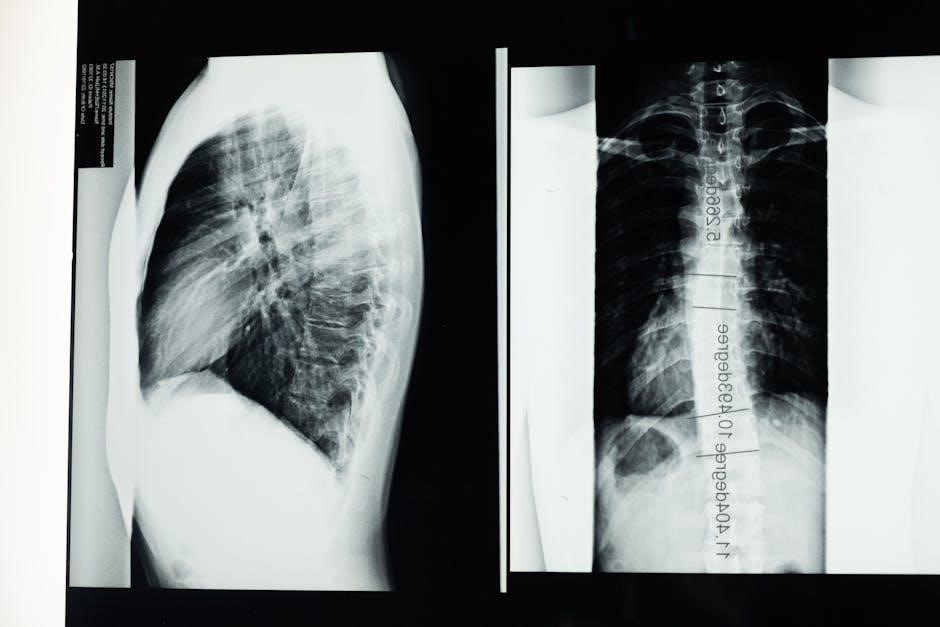Spinal Cord Stimulator Psychological Evaluation: A Comprehensive Guide
Are you contemplating spinal cord stimulation (SCS) to alleviate chronic pain? This comprehensive guide explores the vital role of psychological evaluation in the SCS process. Understanding the psychological aspects ensures optimal patient selection and successful pain management outcomes‚ making it a crucial step.
Spinal Cord Stimulation (SCS) represents a significant advancement in pain management‚ offering hope to individuals grappling with chronic pain that has proven resistant to conventional treatments. SCS involves the implantation of a small device‚ a spinal cord stimulator‚ under the skin. This device delivers mild electrical impulses to the spinal cord‚ effectively masking or modifying pain signals before they reach the brain.
This therapy is primarily designed for patients suffering from neuropathic pain or those who have experienced unsuccessful back surgeries. The electrical impulses generated by the stimulator interfere with the transmission of pain signals‚ providing relief and improving the patient’s overall quality of life. A trial period‚ typically lasting 5 to 7 days‚ is crucial to assess the effectiveness of SCS for each individual before permanent implantation.
While SCS has demonstrated effectiveness for neuropathic pain‚ patient selection remains a key factor in determining long-term success. The procedure is increasingly offered to patients suffering from chronic pain. It is important to consider that psychological factors play a crucial role in the success of SCS therapy.
The Role of Psychological Evaluation in SCS Candidacy
Psychological evaluation stands as a cornerstone in determining candidacy for spinal cord stimulation (SCS). This evaluation is not merely a formality‚ but a critical step in ensuring optimal patient outcomes and responsible use of this advanced pain management technique. The primary aim is to assess the patient’s psychological and emotional readiness for the procedure‚ as well as to identify any pre-existing psychological conditions that could potentially impact the success of SCS therapy.
Candidates for SCS implantation are routinely referred for psychological assessment. This pre-surgical evaluation helps to determine a person’s suitability for the treatment option. The evaluation also helps to identify individuals who may benefit from additional psychological support before‚ during‚ or after the SCS implantation. By carefully evaluating psychological factors‚ clinicians can make informed decisions about patient selection and tailor treatment plans to maximize the likelihood of a positive outcome.
The process incorporates clinical interviews‚ standardized psychological tests‚ and a thorough review of the patient’s medical and psychological history. Ultimately‚ the psychological evaluation serves to ensure that the patient is psychologically prepared to embrace the changes and challenges that come with SCS therapy.
Why is Psychological Evaluation Required?
Psychological evaluations are a crucial step in the spinal cord stimulation (SCS) process. They play a vital role in identifying factors that can influence the success of the treatment. Chronic pain is not solely a physical experience; it profoundly impacts emotional and psychological well-being.
These evaluations are required because psychological factors like depression‚ anxiety‚ somatization‚ and coping mechanisms can significantly affect SCS outcomes. A person’s mental state and how they deal with pain can determine if the stimulator is effective. For example‚ individuals with unresolved psychological issues may have a heightened focus on physical symptoms‚ potentially diminishing the perceived benefits of SCS.
The psychological assessment is also essential for identifying individuals who might need additional support before‚ during‚ and after the SCS implantation. The evaluation helps ensure that patients have realistic expectations about the procedure and are mentally prepared to manage their pain effectively. The goal is to optimize patient selection and enhance the overall success of the treatment.
Therefore‚ integrating psychological assessment into the SCS process is paramount. It’s not merely about excluding patients but ensuring the best possible outcomes.
Components of a Psychological Evaluation for SCS
A comprehensive psychological evaluation for spinal cord stimulation (SCS) candidacy involves several key components. The primary goal is to assess the patient’s psychological and emotional readiness for the procedure and identify potential factors that could affect the outcome.

Firstly‚ a clinical interview is conducted to gather detailed information about the patient’s medical history‚ pain experience‚ psychological history‚ and current mental state. This includes exploring their coping strategies‚ social support‚ and any history of mental health issues like depression‚ anxiety‚ or substance abuse. The interview helps the psychologist understand the patient’s perspective and expectations regarding SCS.
Secondly‚ standardized psychological tests and questionnaires are administered to measure specific psychological constructs. These tools assess mood‚ anxiety levels‚ pain-related beliefs‚ and personality traits. Commonly used instruments include the Beck Depression Inventory (BDI) and the Minnesota Multiphasic Personality Inventory (MMPI). These tests provide objective data to complement the clinical interview.
Finally‚ the evaluation includes a review of relevant medical records and communication with the patient’s referring physician. This ensures a holistic understanding of the patient’s condition and facilitates collaborative decision-making. The psychologist compiles all the information into a comprehensive report that is shared with the treatment team.
Common Psychological Assessment Tools Used
Psychological evaluations for spinal cord stimulation (SCS) candidacy often incorporate a variety of assessment tools to provide a comprehensive understanding of the patient’s psychological state. These tools aim to identify potential psychological factors that could influence the success of SCS treatment.
One frequently used instrument is the Minnesota Multiphasic Personality Inventory (MMPI)‚ which assesses personality traits and identifies potential psychological distress‚ such as depression‚ anxiety‚ and somatization. The Beck Depression Inventory (BDI) is another common tool used to measure the severity of depressive symptoms. Similarly‚ the State-Trait Anxiety Inventory (STAI) evaluates both current (state) and general (trait) anxiety levels.
Pain-specific measures‚ like the McGill Pain Questionnaire (MPQ)‚ help assess the sensory‚ affective‚ and evaluative dimensions of pain. The Pain Catastrophizing Scale (PCS) measures the tendency to magnify the threat of pain‚ feel helpless‚ and ruminate about pain. Additionally‚ measures of coping strategies‚ such as the Coping Strategies Questionnaire (CSQ)‚ can provide insight into how patients manage their pain.
These tools‚ combined with clinical interviews‚ contribute to a thorough psychological profile‚ aiding in the selection of suitable SCS candidates and optimizing treatment outcomes.
Psychological Factors Influencing SCS Outcomes
Psychological factors play a significant role in determining the success of spinal cord stimulation (SCS) for chronic pain management. Several psychological variables have been identified as potential predictors of SCS outcomes‚ highlighting the importance of psychological evaluation in the selection process. Depression‚ for instance‚ can significantly impact a patient’s perception of pain relief and overall satisfaction with SCS.
Anxiety‚ another prevalent psychological factor‚ can exacerbate pain and interfere with coping mechanisms‚ thereby diminishing the effectiveness of SCS. Somatization‚ the tendency to experience and report physical symptoms in response to psychological distress‚ can also negatively influence SCS outcomes. Patients with high levels of somatization may focus excessively on their pain‚ making it more challenging to achieve meaningful pain reduction.
Coping strategies also play a crucial role. Patients who utilize maladaptive coping mechanisms‚ such as catastrophizing or avoidance‚ may experience poorer outcomes compared to those who employ adaptive coping strategies like acceptance and active problem-solving. Furthermore‚ psychological disorders‚ such as personality disorders or substance use disorders‚ can complicate treatment and reduce the likelihood of successful SCS implementation.
Addressing these psychological factors through pre-operative psychological interventions can improve SCS outcomes and enhance the overall patient experience.
Identifying Ideal Candidates Through Psychological Assessment
Psychological assessment is crucial in identifying ideal candidates for spinal cord stimulation (SCS). It helps determine if a patient’s psychological profile aligns with factors predictive of successful outcomes. The evaluation aims to identify any psychological barriers that might hinder the effectiveness of SCS‚ such as untreated depression‚ anxiety‚ or significant personality disorders.
A comprehensive assessment explores the patient’s coping mechanisms‚ pain beliefs‚ and overall psychological well-being. Individuals who demonstrate resilience‚ realistic expectations‚ and adaptive coping strategies are more likely to experience positive results from SCS. Conversely‚ patients with high levels of psychological distress‚ maladaptive coping styles‚ or unrealistic expectations may be less suitable candidates.
The psychological evaluation also helps to identify patients who might benefit from pre-SCS psychological interventions. Addressing underlying psychological issues before implantation can optimize treatment outcomes and improve the patient’s overall experience. By carefully screening candidates‚ clinicians can ensure that SCS is offered to individuals who are most likely to benefit from this pain management strategy.

Ultimately‚ psychological assessment serves as a vital tool in maximizing the success rate of SCS and improving the quality of life for patients with chronic pain.
What to Expect During the Psychological Screening

The psychological screening for spinal cord stimulation (SCS) candidacy typically involves a comprehensive evaluation process. Initially‚ you’ll likely complete questionnaires assessing mood‚ anxiety‚ pain perception‚ and coping strategies. These standardized measures provide valuable insights into your psychological state and how you manage chronic pain.
Following the questionnaires‚ you’ll meet with a psychologist or psychiatrist for a clinical interview. During this interview‚ you’ll discuss your pain history‚ medical background‚ and any psychological concerns. The interviewer will explore your emotional well-being‚ coping mechanisms‚ and expectations regarding SCS treatment. It’s important to be honest and open during this interview to ensure an accurate assessment.
The psychologist may also administer specific psychological tests to assess personality traits‚ cognitive functioning‚ or the presence of any underlying mental health conditions. These tests help to identify potential psychological factors that could influence the success of SCS. The entire screening process aims to gather a holistic understanding of your psychological profile and determine your suitability for SCS.
Remember‚ the goal is to ensure that you are both physically and psychologically prepared for this treatment option. This assessment helps to predict if you need to see a therapist or take medication before the implant.
Guidelines and Recommendations for Psychological Evaluation in SCS

Established guidelines emphasize the importance of psychological evaluations as an integral part of the spinal cord stimulation (SCS) candidacy process. These guidelines recommend a thorough assessment that includes clinical interviews by qualified psychologists and the use of standardized psychological measures. The evaluation should assess various psychological factors‚ such as mood‚ anxiety‚ coping skills‚ and pain-related beliefs.
Recommendations suggest that the psychological evaluation should be conducted before the SCS trial to identify potential psychological barriers to successful outcomes. The assessment should also evaluate the patient’s understanding of the SCS procedure‚ realistic expectations‚ and commitment to adhering to the treatment plan. Furthermore‚ the guidelines highlight the need for a comprehensive report summarizing the findings of the evaluation‚ along with recommendations for addressing any identified psychological concerns.
It’s crucial that the psychologist conducting the evaluation has expertise in chronic pain management and psychological assessment. These assessments should include reviewing any psychiatric comorbidity prior to the SCS implantation. Adhering to these guidelines and recommendations ensures that the psychological evaluation is conducted in a standardized and comprehensive manner‚ optimizing patient selection and maximizing the likelihood of successful SCS outcomes.
Almost all guidelines for SCS agree that a psychological evaluation is essential for consideration for SCS.
Addressing Psychological Concerns Before SCS Implantation
Prior to spinal cord stimulator (SCS) implantation‚ addressing identified psychological concerns is paramount for optimizing treatment outcomes. The pre-surgical psychological evaluation often reveals factors like depression‚ anxiety‚ or maladaptive coping mechanisms that can negatively impact the success of SCS therapy. If such concerns arise‚ interventions should be implemented before proceeding with the implantation.
These interventions might include individual or group therapy to address mood disorders‚ anxiety management techniques‚ or cognitive-behavioral strategies to modify pain-related thoughts and behaviors. Patients may also benefit from learning relaxation techniques or mindfulness practices to manage stress and improve coping skills. In some cases‚ medication management may be necessary to stabilize mood or reduce anxiety levels.
The goal is to ensure that patients are psychologically prepared for the SCS procedure and have the necessary tools to effectively manage their pain and adjust to life with the device. Regular follow-up appointments with a psychologist or mental health professional can provide ongoing support and address any emerging psychological challenges. By proactively addressing these concerns‚ we can significantly enhance the likelihood of successful pain relief and improved quality of life following SCS implantation.
Psychological screening helps doctors determine if patients need to see a therapist or take medication before the implant.